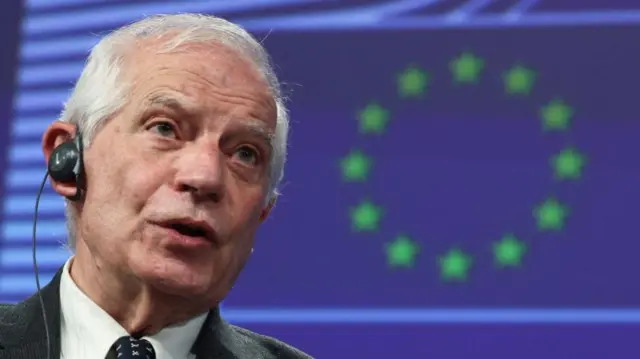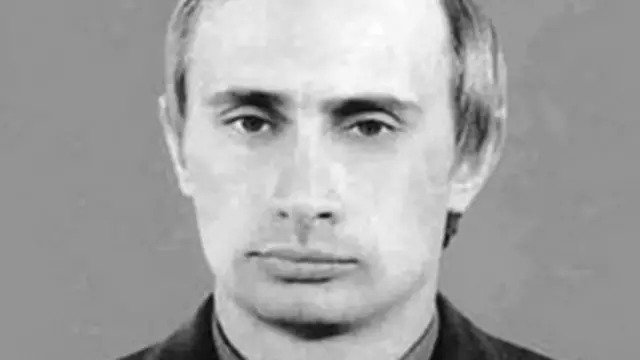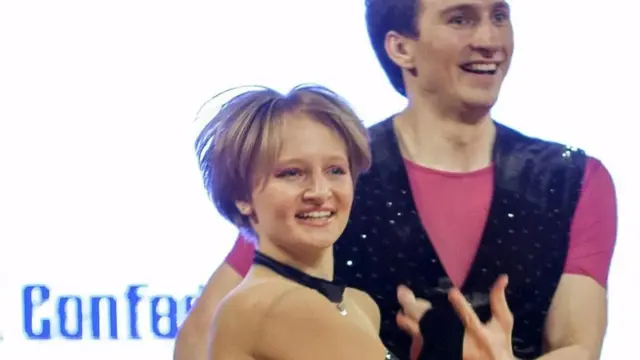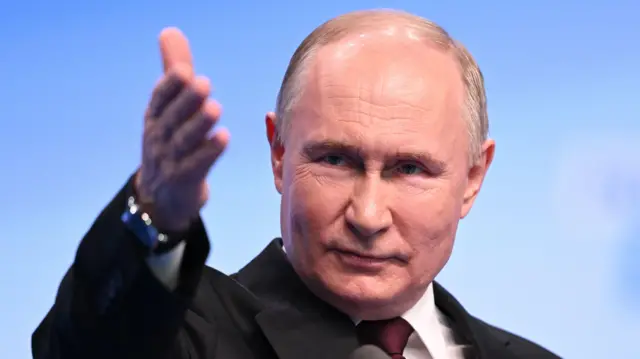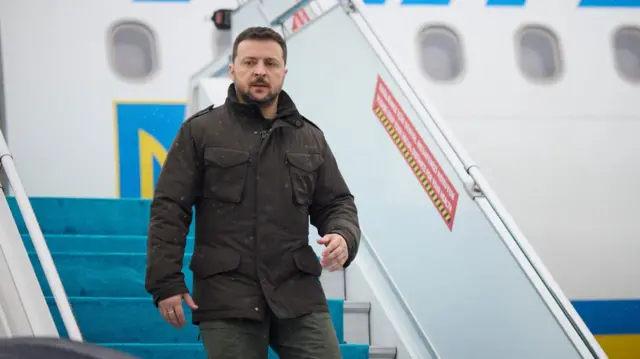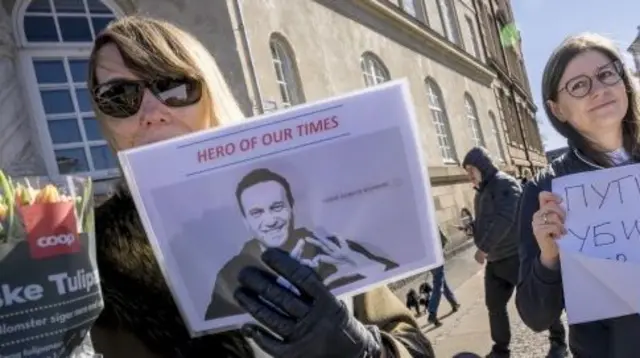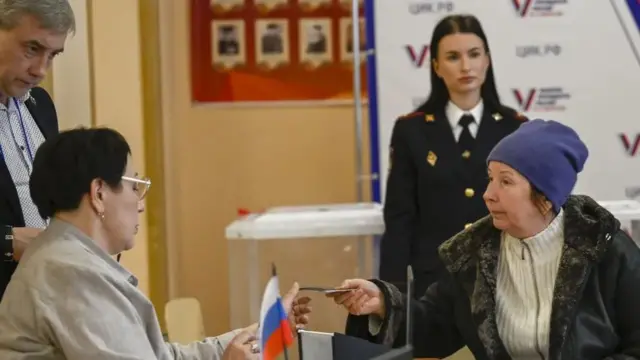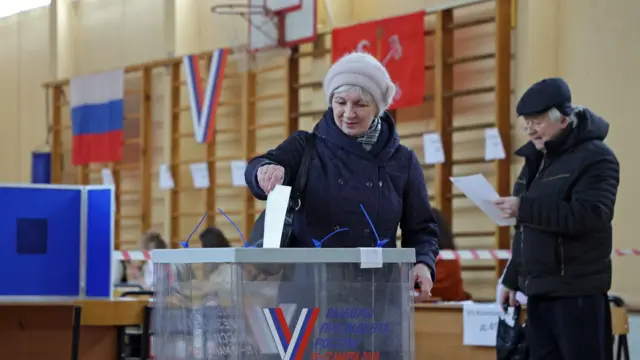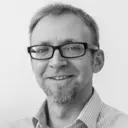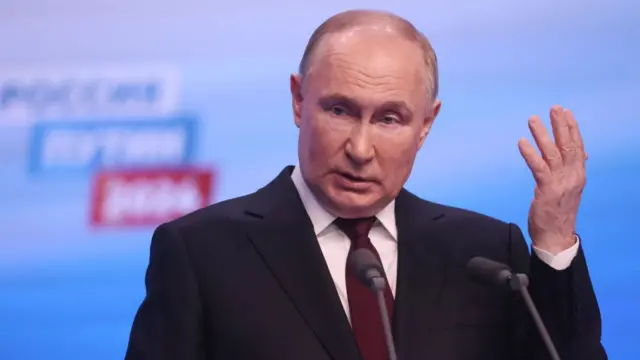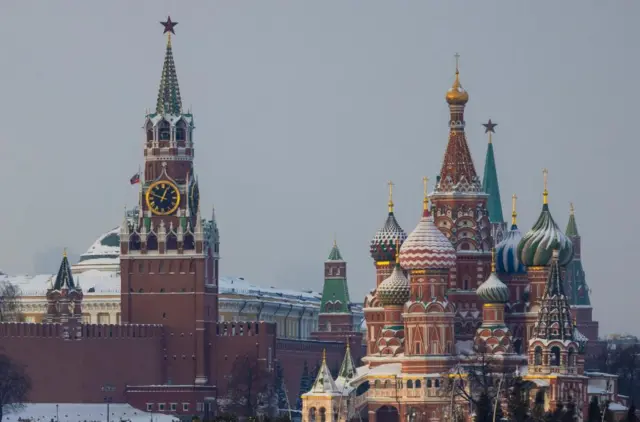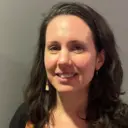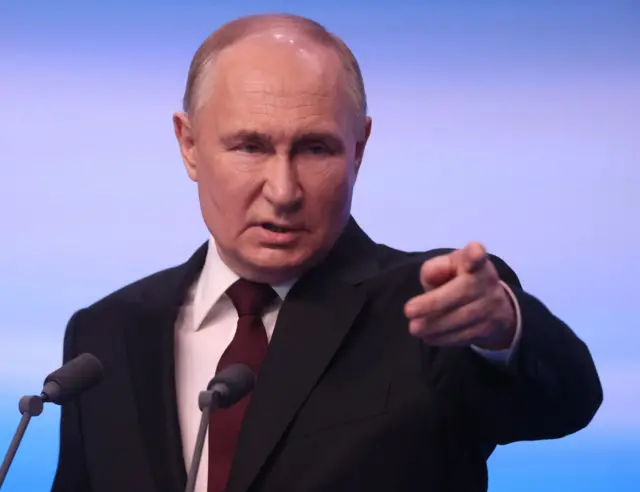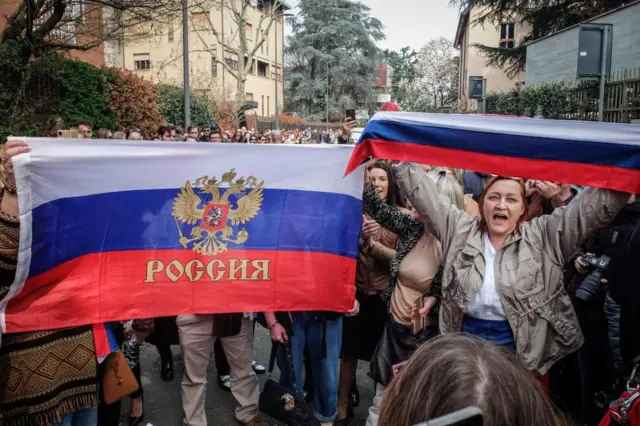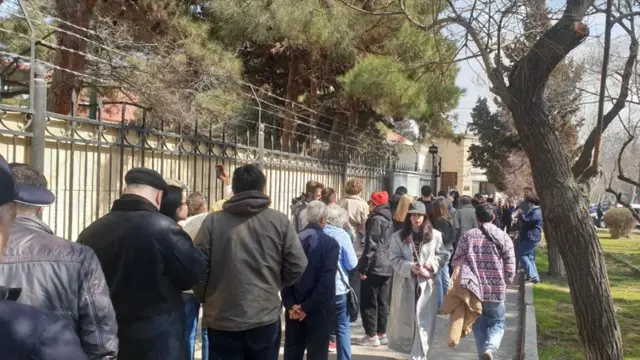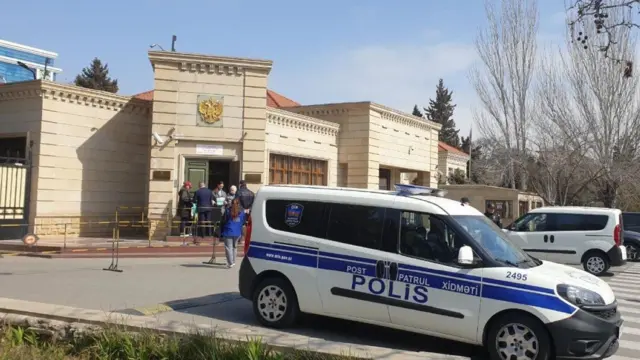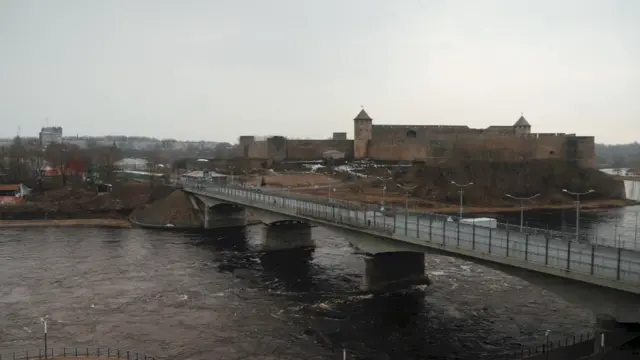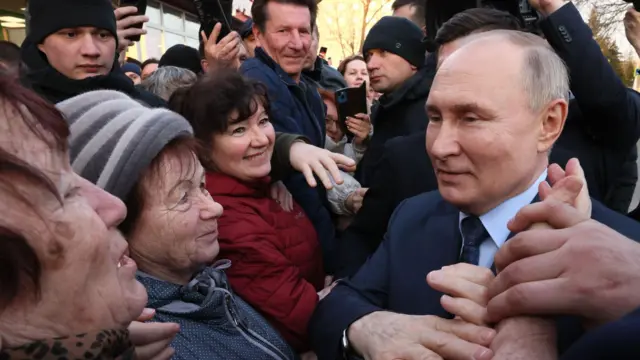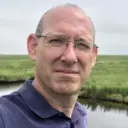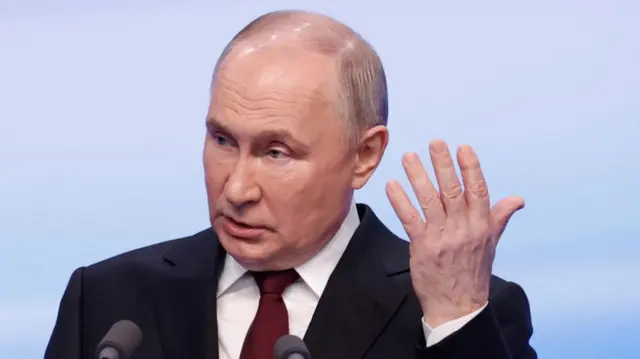Everything is not in vain - Yulia Navalnyapublished at 10:06 GMT 18 March 2024
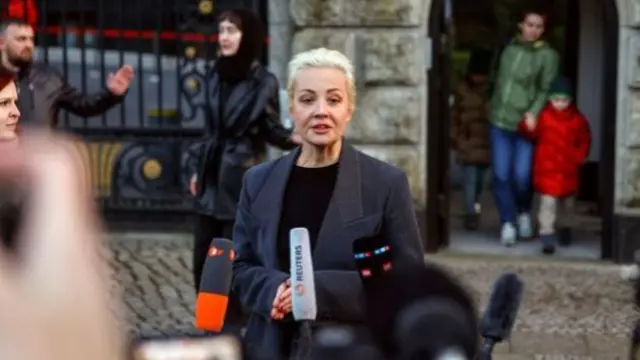 Image source, EPA
Image source, EPAYulia Navalny talking to the media outside the Russian embassy in Berlin, 17 March
Yulia Navalnya, who is the widow of the late Russian opposition leader Alexei Navalny, has thanked supporters for taking part in yesterday's "noon against Putin" protest.
She has posted on X, external, formerly known as Twitter, and says she is grateful to the people "who stood with me from 12 noon for a whole six hours, side-by-side in line at the polling station" at the Russian embassy in Berlin.
Yulia Navalnya called for people to form long queues at polling stations at midday on Sunday in a show of protest against President Putin.
Navalnya says it gave her hope when people shouted "Yulia, we are with you" and called out her late husband's name.
Alexei Navalny died last month in a remote penal colony in Siberia where he was being held on a 19-year sentence over charges that were widely seen as politically motivated.
His wife also says that the supporters who came out gave her hope that "everything is not in vain, that we will still fight".
She thanks everyone "who came out in every city around the world" and says "I love you all very much".
